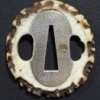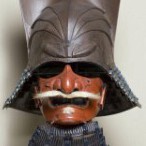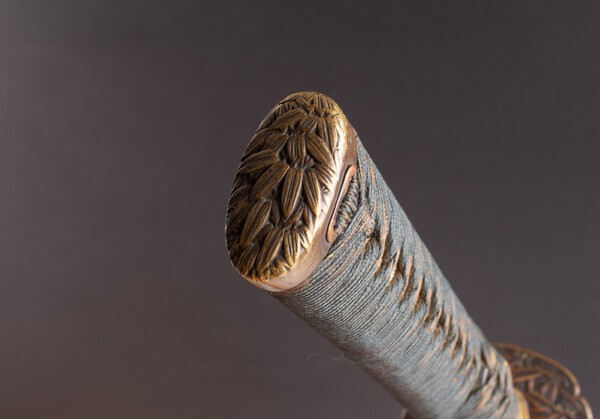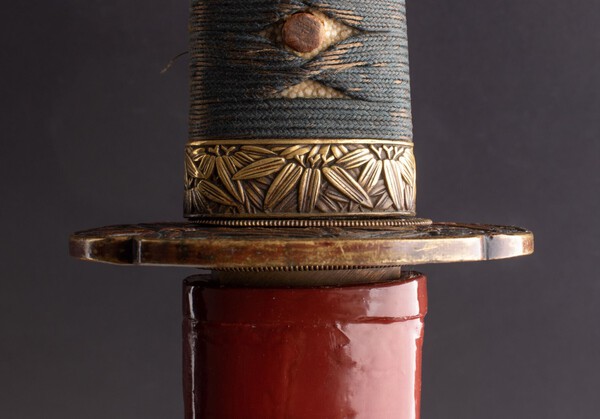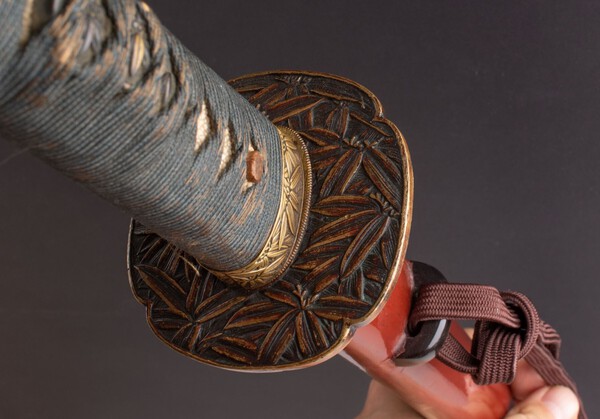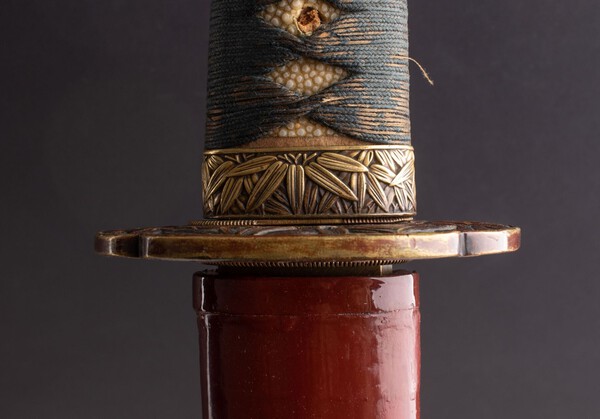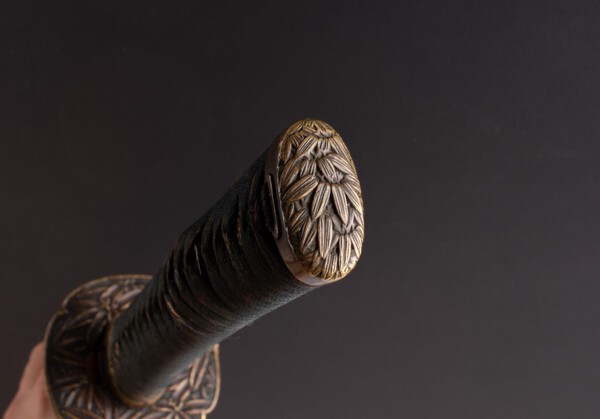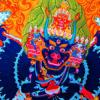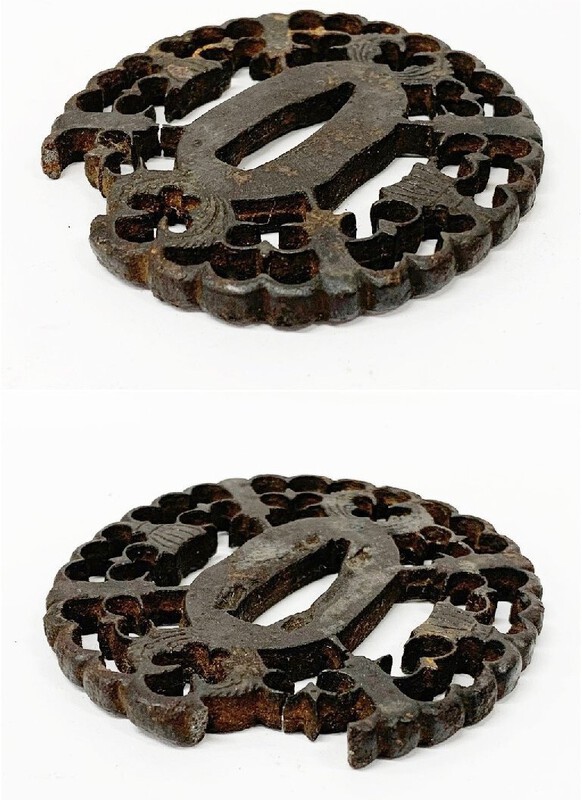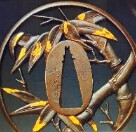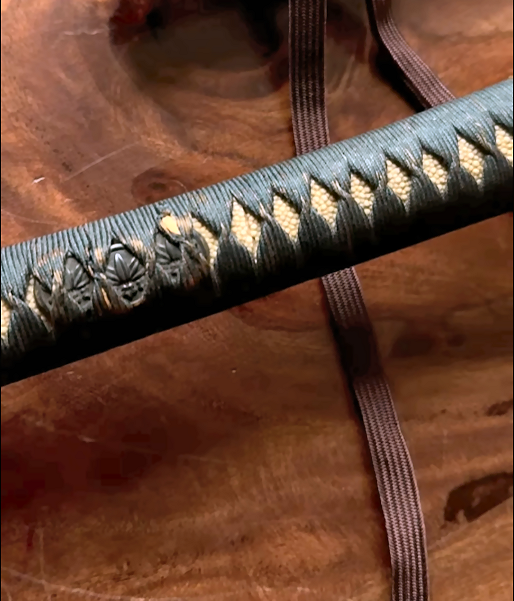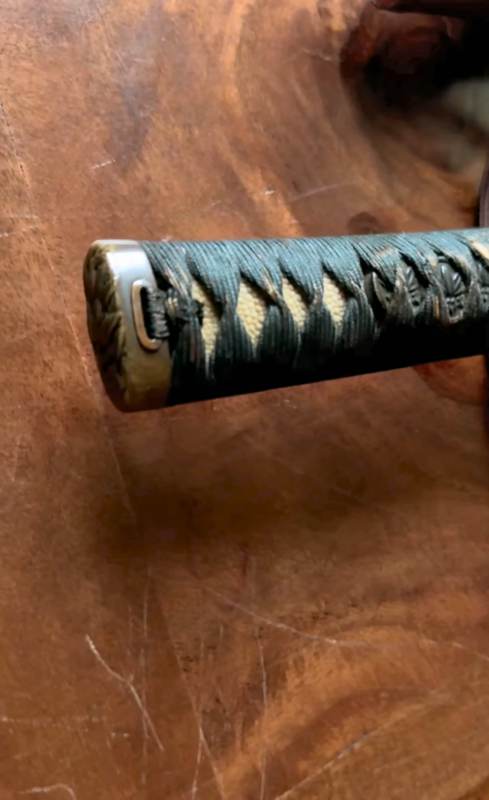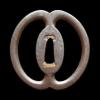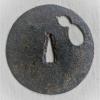Leaderboard
Popular Content
Showing content with the highest reputation on 11/14/2024 in all areas
-
There are several of us that search through forums, going back several years. Links often go dead after some time goes by and the pictures are lost to research. So, I prefer posting relevant photos to the discussion with an added link to the site for guys that want to know more.5 points
-
4 points
-
The last three are fakes. The last one is the worst. The others look genuine to me, but only average quality. 3 and 4 same guard front and back? [not too bad] For my taste I like number 5 with the Kawari [irregular] shape, added sekigane and the filled hitsu. Like most things it depends what the asking prices are - but don't waste your money on the last three.4 points
-
Thanks again Everyone for your input, opinions & experience. If the tsuba is modern (personally I am unsure) it was very well matched to the rest of the fittings. I have some other pieces that you may find interesting but I work at sea (cruise liners) so it may take time to post them up but one I suspect is a chu mihara wakizashi. Anyhow many thanks once again .3 points
-
3 points
-
2 points
-
Hi Robert, I don’t know about the wabi aesthetics, but I like your tsuba! My kind of tsuba, old and rusted (like a majority of my tsuba in my collection of about 150 of them). I don’t bother much cleaning them up. If I wanted an Edo period tsuba that looks perfect, I would just go ahead and buy one. But I would have to spend a lot more money for it (and I can’t afford that!). Enjoy and continue to learn from your very nice tsuba (and I know calling your tsuba very nice is just my opinon -others may disagree). With respect, Dan2 points
-
The "crepe paper" background plate are fairly common, only a small percentage have added decoration - no proof but I think the decoration was added later in many cases. Probably to "dress up" an otherwise plain looking guard. There is a name for the stippled plate but I can't remember it, most are sold as Yasurime-ji or Amida-yasuri but this is not strictly correct. They come in all shapes as well but by far the most common are Maru or Mokko. There is no doubt yours is genuine.2 points
-
Hi guys I decided to lower price 300.00 2300 +100.00 shipping Great price steve1 point
-
1 point
-
1 point
-
Judging by the shade of yellow on this item its Taisho or early Showa and not the first grade product, which is often dangerous because the wood quality is a bit random and there can be issues. Otherwise, they are neat items. Usually black lacquer with something like a mon in gold or other simple decoration. I prefer sword boxes because they are often older, have descriptions, some are high class lacquer.1 point
-
Dan Tsuba: That's a great example of the characteristics of cast iron which are evident with destructive testing. Not of course something most of us would prefer as a testing method, but it does happen! Robert S1 point
-
Pictures of 131 can be seen via the link below. I think you have the highest that I have seen so far. Thanks for sharing Nicholas. An Appraisal on Some Japanese Swords Please Sword Number 31 point
-
Thomas I will take the last book you posted for $30.00 shipped. ( modern Japanese swords ). Thank you. MikeR pm me with how you would like payment and for my information1 point
-
So, in my first post on this thread I wanted to show members what a broken piece of cast iron looks like. Well, a broken cast iron tsuba is shown in picture number 1 and 2 below. Compare those pictures (showing small grainy or sand type raised and lowered areas) to another cast iron tsuba shown below. That other cast iron tsuba was shown on my post on p. 12 of my "Tsuba casting molds?" thread. (and yes, we all remember that thread!) -with explanation on June 26, 2023- picture 3 below-which you might have to zoom in on. And let us not forget that I show pictures and state a reference here, unlike many members on that privously mentioned thread (oh well, let's not go there!). I know that is a tiny area of that particular tsuba that was chipped off (on purpose if you read the post), but you can still notice the sand type texture of that exposed tiny piece. So, my opinion is that the picture of that chipped tsuba referred to above is a cast iron tsuba. I am pretty sure it would take a lot more effort to chip a small piece from a wrought iron tsuba than it would to chip a small piece from a cast iron tsuba (since cast iron is very brittle). Pictures number 4, 5 and 6 shows a different broken cast iron tsuba for comparison (smaller areas of cast iron shown). Now compare those pictures to the broken piece picture of wrought iron shown below (picture number 7). Big difference! A good website that explains and shows several pictures of broken wrought iron is shown below (I got the picture from that website)- https://islandblacks...st-for-wrought-iron/ Anyway, the good news is that I didn’t have to break my cast iron skillet to show what a broken piece of cast iron looks like! Hurrah! (and as a side note- I did not damage any of the tsuba shown. All pictures are from the internet!)1 point
-
And another jump to conclusions, before using the calling fake card one needs the rest of the story1 point
-
DKR: I agree that there are significant condition problems. But beneath that you can see that the tsuba was deliberately made to look rustic or simple... so the rust sort of goes with the aesthetic, although I'll work to stabilize it. I know this look isn't everyone's cup of tea (pardon the pun), but I'm a great fan of cups and other utensils made for chanoyu... so it's right up my alley :-) Robert S1 point
-
1 point
-
The seller updated his offerings and just for refference those are his offerings, all descriptions state original EDO Period, but most of them look, well like obvious fakes, at least to me, but someone might disagree so here they are To me, first and third one look like worth getting for me, just for the looks, but I would really like to avoid buying fakes.1 point
-
1 point
-
Benjamin, you cannot increase the density of a metal with mechanical methods. The density of steel is always 7,85, and very small variation would only be possible by using special alloying metals like tungsten or cobalt. In theory, large quantities of a lighter metal like titanium would make the steel less dense, but that would show only in the last figures. Just to mention it, intense hammering does not make the steel harder....1 point
-
New offer. a. Iron tsuba with Wisteria (probably) motif 74,5 x 74,4 x 4,4 (mimi:4,25 mm). Probably Shoami. T742819 https://www.flickr.c...s/72177720316885740/ b. Iron tsuba, Hats, seppa marks, thumb mark, signed (in progress), Umetada school taste, HWT: 76,6 x 75,6 x 4,9, 118,7 gr, T254715 https://www.flickr.c...s/72177720307047002/ c. Iron, mokume tsuba, beautiful forging marks - line tekkotsu, 69,5 x 67,5 x 4,7, T745293 https://www.flickr.c...s/72177720315076495/ d. Iron tsuba Tosho taste, mon sukashi Clove, 71 x 65 x 2,6 (mimi: 3,7 mm), tekkotsu, T943724, https://www.flickr.c...s/72177720312386405/ By clicking on the attached link, you will find many high resolution photos. Shipping $15,-1 point
-
0 points
-
Exposure to radiation wasn't quite on my list, but it does look like it may speak to a very sad piece of history.0 points
-
As long as its special strength superglue and the number is doubled by chiseling across the plate - everything is fine.0 points
-
This is a TOKEI TSUBA. They are much easier to forge and file than to make a mold and cast an iron copy that would then have to be worked over to make it look better. Casting iron is very different from casting soft metals, and in addition to that, there is no sense in producing TSUBA that weren't useful for combat. In the picture we can see that a tiny bit was broken off. There is not enough material length to bend, so iron or steel will simply break under these conditions. USAGIYA are certainly competent in their own field, but this is metallurgy.-1 points
This leaderboard is set to Johannesburg/GMT+02:00


